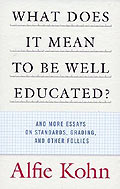
On Parent's Night, one of the children decided he wanted to show his parents how to make corn bread. Unfortunately, we had run out of cornmeal that day. Not letting this stop him, the child went into the baking center and pulled out the Betty Crocker Children's Cookbook, a cookbook that is a replica of recipes and cookbooks from the fifties. I was otherwise occupied but happened to notice him cooking and wondered what he was making. Later his Mom showed me the recipe: get a can of juice, put it in a pitcher, add water and stir. I had to laugh! He had gone into the freezer, got a can of apple juice and made a pitcher of juice. We actually don't drink juice in our Casa any longer, so it must have been from the previous year. This child, who was introverted, quiet, and had trouble asking for presentations last year, is now going ahead, figuring out what he wants to do, and finding a way to do it. Another story of Montessori initiative. As my friend Dr. Steve Hughes says, "Montessori kids are simply good at doing things!" Definitely what the world needs today.








